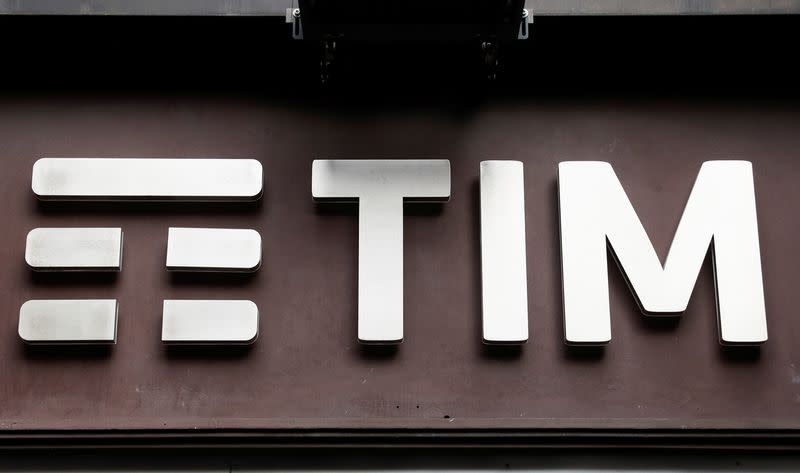Explainer-What next for Telecom Italia after network sale to KKR?

By Elvira Pollina
MILAN (Reuters) - Telecom Italia (TIM) will finalise on July 1 the landmark sale of its fixed-line domestic access network to U.S. fund KKR, a deal that makes it the first phone incumbent in a major European country to part ways with its landline grid.
WHAT IS TIM SELLING?
TIM's fibre and copper landline network covers nearly 89% of the country's households and its fibre cable stretches over 23 million kilometres (14.3 million miles) across the country, making it the main piece of Italy's telecoms infrastructure.
WHAT WILL TIM LOOK LIKE AFTER THE SALE?
TIM will shift more than half of its domestic workforce on to the network venture, leaving it with some 16,000 employees in Italy. It will reduce its leverage by 14 billion euros ($15.02 billion) to 1.6-1. times its core earnings when including lease costs.
Under a business plan overseen by Chief Executive Pietro Labriola, the network sale is intended to give TIM greater commercial flexibility to compete in the domestic retail service market and the opportunity to explore M&A deals and partnerships.
The main units of the residual business are TIM Consumer, TIM Enterprise, providing connectivity, cloud and cybersecurity services for bigger business customers, and TIM Brasil, its Brazilian operation.
WHY IS TIM SELLING THE NETWORK?
Crippled by 27 billion euros in net debt, cash-burning TIM has resorted to hiving off its main asset after years of fruitless efforts to restructure its domestic business, whose earnings and revenue have been shrinking for years.
Grappling with stiff price competition on its home turf, TIM also came under increasing pressure as interest rates rose.
HOW MUCH IS THE DEAL WORTH?
KKR, which was already a minority investor in a portion of TIM's grid, valued TIM's network at up to 22 billion euros, including some 3 billion euros in variable components mostly linked to a future potential combination of the assets with those of state-backed rival network operator Open Fiber.
WHAT IS THE ROLE OF THE ITALIAN GOVERNMENT?
Italian Prime Minister Giorgia Meloni's right-wing administration endorsed the deal as part of a wider agreement to co-invest in the network, taking a stake of up to 20% in an asset deemed of strategic importance.
WHO ARE KKR'S OTHER PARTNERS IN THE NETWORK DEAL?
Italian infrastructure fund F2i will hold a 10% stake in the venture, while Abu Dhabi's sovereign wealth fund ADIA and Canada Pension Plan will hold a 20% stake and 17.5% stake respectively.
WHAT ABOUT TIM INVESTORS?
So far investors have shown little enthusiasm for the reshaped TIM. Shares plunged 24% when Labriola unveiled the outlook for the new business in March and the stock has remained depressed.
Leading TIM shareholder Vivendi is challenging TIM's decision to sell the network in courts and questioned the sustainability of the business left behind.
($1 = 0.9321 euros)
($1 = 0.9320 euros)
(Reporting by Elvira Pollina; Editing by Keith Weir and Sharon Singleton)

 Yahoo Finance
Yahoo Finance 